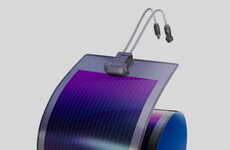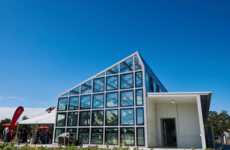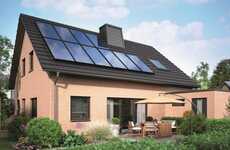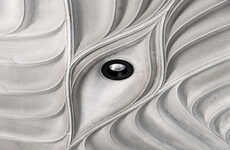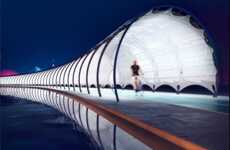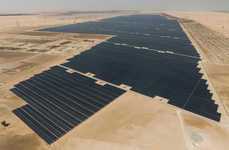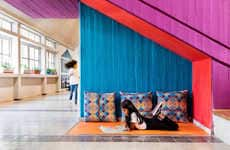
LafargeHolcim and Heliatek Prototype Photovoltaic Cladding
References: lafargeholcim & dezeen
Photovoltaic cladding might allow concrete buildings to capture solar energy. The prototype was developed by LafargeHolcim and Heliatek. It brings together the former firm's concrete material and the later company's HeliaFilm which is "a flexible solar film that is just one millimeter thick." The innovation is quite promising for the sustainability agenda as facades typically offer a greater surface area than roofs which is where solar panels are traditionally placed.
By LafargeHolcim's estimation, the photovoltaic cladding "has the potential to double the energy generation that a building can achieve." The prototype was tested by the two companies in Lyon and a plan has been set forth to make the eco-conscious photovoltaic cladding available in 2019.
By LafargeHolcim's estimation, the photovoltaic cladding "has the potential to double the energy generation that a building can achieve." The prototype was tested by the two companies in Lyon and a plan has been set forth to make the eco-conscious photovoltaic cladding available in 2019.
Trend Themes
1. Photovoltaic Cladding - The development of photovoltaic cladding presents opportunities for concrete buildings to generate solar energy from their facades.
2. Sustainable Building Materials - The use of innovative materials like LafargeHolcim's concrete and Heliatek's HeliaFilm opens up possibilities for more sustainable construction practices.
3. Energy-generating Facades - Energy-generating facades offer the potential to significantly increase a building's energy generation capabilities for a more sustainable future.
Industry Implications
1. Construction - The construction industry can explore the incorporation of photovoltaic cladding and other sustainable building materials to enhance energy efficiency and reduce environmental impact.
2. Renewable Energy - The renewable energy industry can leverage the development of energy-generating facades to expand its reach beyond traditional roof-based solar panels and tap into the potential of building surfaces.
3. Architecture - Architects and designers can embrace the use of photovoltaic cladding and innovative building materials to create visually appealing, energy-efficient structures.
2.4
Score
Popularity
Activity
Freshness

